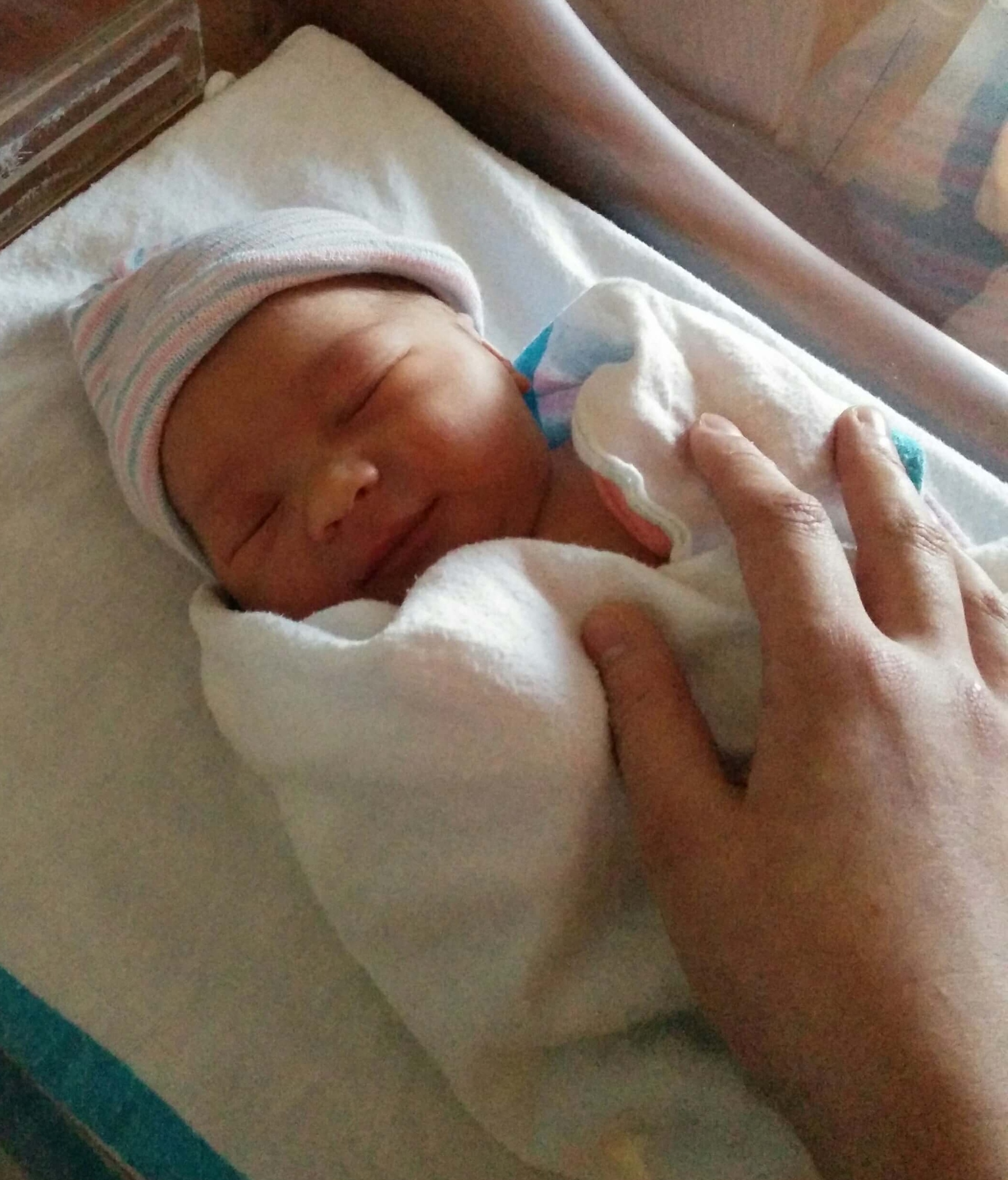Elizabeth Toth, Communications Coordinator at National University of Health Sciences, shares how alternative medicine helped her have a natural, unmedicated birth.
When I found out I was pregnant, one of the first things that came to mind was what childbirth might be like. I had images of women screaming in pain, cursing their husbands, begging for drugs. With how birth is portrayed in movies, it’s no wonder I was a little nervous about it.
While giving birth in real life isn’t exactly like that, I still needed to educate myself and prepare for the experience both mentally and physically. For most doctors, giving birth is considered a major medical event. Luckily it was one I could prepare for.
Ideally, I wanted to avoid a c-section and all complications that came with it. But the odds were stacked against me. Despite living in a first-world country, a woman’s chances of having a c-section in the United States is 1 in 3, according to a 2017 Consumer Reports study. In the 1980s and ‘90s, my mother had myself and all my three siblings via c-section, as well.
Educating yourself is key
In hopes of a positive birth experience, I took my health into my own hands and did my own research. I discovered that in order to lower my chances of having a c-section, I needed to avoid other medical interventions. An epidural, in particular, increases the likelihood of having a c-section and is associated with a number of other medical interventions and side effects.
More hospitals and organizations are catching on to the need for more conservative care. Earlier this year, the World Health Organization released new guidelines on intrapartum care recognizing that the increasing medicalization of birth is negatively impacting birth experiences. Not all doctors have updated their practices, however.
In fact, when bringing up my ideas for a birth plan, I was often told that it was unnecessary and that I would just end up disappointed. It is sad to think how many women are treated this way when trying to make informed decisions about their births. Luckily by doing my own research, I knew that I had choices, not to mention pain relief options if I wanted to avoid an epidural.
Among the options to improve my chances of a natural birth were many alternative medicine techniques.
I took the right supplements with the guidance of a naturopathic doctor
At NUHS Whole Health Center, I worked with a naturopathic intern to discuss the proper nutrition and supplementation needed for a healthy pregnancy and birth. The placenta cannot filter out all toxins so what you eat is an important factor in the overall health of your baby. I was even given guidance on what beauty products (shampoo, lotion, etc.) contain harmful chemicals. Skin Deep is a useful website that provides information about the chemicals in the products you use at home.
Moreover, the right nutrition/supplements can help reduce medical interventions and even pain during labor. Simply taking any prenatal picked up off the shelf of the grocery store was not enough. It was also beneficial that I take:
Vitamin D – Many Americans are deficient in vitamin D. According to the American Society of Anesthesiologists, women with low vitamin D levels experience an increased amount of pain during labor.
Fish Oil– In today’s society, we don’t eat nearly as much fish as we used to. Mercury levels in certain fish are also a concern. By taking a fish oil supplement, I was able get docosahexaenoic acid (DHA), a type of omega 3 fatty acid. Found naturally in fish, DHA is shown to support brain development and health.
Magnesium – This is the most abundant mineral in the body that can be quickly depleted by stress. Magnesium helps relax muscles and can ease leg cramps that are common in pregnancy. Studies also show that an adequate amount of magnesium can prevent pre-term contractions.
Probiotic with Acidophilus– Taking a probiotic with this strain of bacteria can help you avoid Group B Strep, an infection that requires the use of antibiotics during labor. In general, studies show that probiotics that support a healthy gut can be beneficial for both your immune system and your mental health. According to researchers, your microbiome, or the healthy bacteria that live in your gut, produce neurotransmitters that communicate directly with the immune system and your brain. When thrown out of balance, illness and mental health issues can result.
Protein – Pregnant women need a surprising amount of protein: 75-100 grams per day, according to experts. Since it’s likely that you probably weren’t getting this amount as part of your pre-pregnancy diet, you might have to adjust your meals and/or take protein supplements.
Chiropractic adjustments helped ease strain and ensure proper alignment
The body goes through a wide range of changes during pregnancy, putting strain on your lower back, pelvis and other supporting ligaments. In order to reduce strain, I started seeing a chiropractic intern at the Whole Health Center starting at 20 weeks. She performed the Webster technique on me once a week.
Specifically for pregnant women, this adjustment technique ensures proper alignment in the pelvis and helps reduce strain on the supporting ligaments. Proper alignment allows the baby to get into the ideal position for labor and can therefore lower the likelihood of a difficult labor and/or c-section.
Throughout my pregnancy, seeing a chiropractic intern every week helped me avoid low back pain and other strain common in pregnancy. Like naturopathic doctors, the chiropractic physicians at National University are trained extensively in nutrition and provide guidance in proper diet and supplementation. They can also provide guidance on healthy exercises to perform during pregnancy.
Acupuncture helped me go into labor
Many first time moms go past their due date, which was the case for me. Even though going a full week past your due date is common, by my fourth day past, I was already being urged to set up an appointment for an induction, which can increase my chances of having a c-section.
Among other natural induction methods like eating pineapple, spicy food etc., I scheduled acupuncture appointments at the Whole Health Center two days before and five days after my due date. Not only did acupuncture speed things along, but I found it relaxing too. The next morning following my second appointment, I was relieved when mild contractions finally began.
Natural pain relief during birth
For 30+ hours I labored mostly at home. I knew this would lower my risk for medical interventions, especially if my labor progressed slowly. Being at home also made it more  difficult to get an epidural, which certainly crossed my mind once or twice.
difficult to get an epidural, which certainly crossed my mind once or twice.
While I studied many natural pain relief options before giving birth, the only pain relief method I personally found effective was the sacrum press or double hip squeeze. This technique involves your partner applying pressure to both sides of your pelvis so that it literally flares out slightly. I had my husband perform this on me during almost every contraction. The only downside is that it requires quite a bit of strength and can tire out your partner.

When my water broke, my doula or birth coach (who was also monitoring my contractions) determined it was time to go to the hospital. I delivered a healthy baby girl three hours later without tearing. I will never forget looking into her wide, blinking eyes for the first time. I was proud of us both!
Alternative medicine played a big role in helping me avoid complications that might have prevented a natural birth. As a result, I not only had a positive experience but a faster and relatively pain-free recovery that allowed me to care for my newborn with greater ease.
I would encourage any woman with a low-risk pregnancy to consider natural birth. The pain is manageable and not as bad as I was led to believe. No matter how you choose to birth, become informed and prepare. Birth doesn’t have to be a painful, fear-filled experience; it can be positive, empowering and even enjoyable.
If you would like to learn about the many benefits of complementary and alternative medicine, we invite you to subscribe to our blog The Future of Integrative Health.
{{cta(‘d3cb3c69-6a73-4d87-a0b2-69806093b98a’)}}




0 Comments